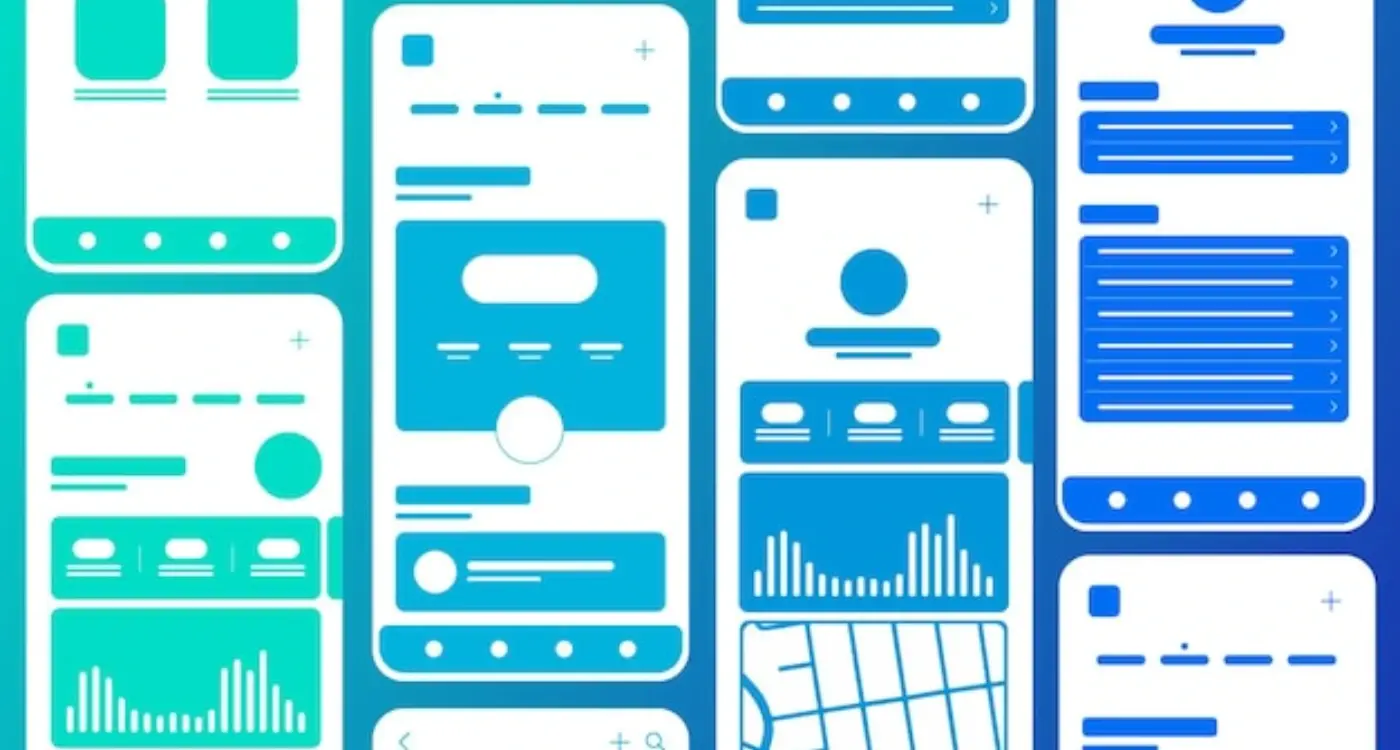Why Is UX Design Crucial to My Mobile App’s Success?
Ever wondered why some mobile apps catch lightning in a bottle while others fizzle out? The secret ingredient isn’t always about flashy features or massive marketing budgets. It's something more foundational – User Experience (UX) Design. Whether you're launching a new app or looking to revamp an existing one, nailing the UX can mean the difference between a user’s one-time download or lifelong loyalty. And trust us, we’ve seen it all.
Design is not just what it looks like and feels like. Design is how it works.Steve Jobs.
Think about it—have you ever abandoned an app because it was confusing or downright frustrating to use? Of course, you have! Now flip the script. As a business owner, you wouldn't want potential customers to ditch your app for the same reasons, right? That’s where we come in – to help turn your app into a user magnet.
The Heartbeat of Your Mobile App: UX Design
Alright, let's break it down. UX, or User Experience, is essentially how a user feels when interacting with your app. Think of it as the pulse that keeps your app alive and kicking. When users find your app easy to use, engaging, and even fun, they’re more likely to become repeat users. And in the business world, repeat users usually translate to steady revenue. Pretty vital, right?
If users struggle to find what they need or get frustrated with complex navigation, they’re going to ditch your app faster than you can say "uninstall". Worse, they might leave a scathing review or tell others about their bad experience. The heartbeat of your mobile app’s success, therefore, lies in making sure those touchpoints are smooth, intuitive, and enjoyable.
You want to balance aesthetics and functionality, to ensure that every interaction counts. You want your users to keep coming back, not just because they need to, but because they want to.
Why Businesses Need to Prioritise UX Design
In today's mobile-centric world, UX design has become synonymous with business success. Think about it: when was the last time you stuck with an app that was difficult to use? Exactly.
Your customers crave simplicity, speed, and seamless interactions. By prioritising UX design, you're not just meeting their expectations – you're exceeding them. It's the difference between an app that's quickly deleted and one that becomes indispensable to your users' daily lives.
Businesses often worry about where to invest their resources to get the most out of their mobile app development. It's understandable; the landscape is competitive, and budgets aren't infinite. But here's a nugget of wisdom: investing in UX design is like investing in customer satisfaction. Poor user experience can lead to frustration, negative reviews, and ultimately, lost business. On the flip side, a positive UX can enhance your brand image and encourage user loyalty.
It’s not just about making things look pretty (although that certainly helps), it’s about creating an intuitive journey that guides users effortlessly. This tailored approach ensures that users can find what they're looking for without confusion or unnecessary steps. Because let's face it, no one has the patience for a convoluted app when there are so many alternatives out there.
Moreover, prioritising UX design means keeping up with the latest trends and technological advancements. This proactivity positions your business at the forefront of innovation, demonstrating to users that you care about providing them with the best possible experience. In return, they reward you with their time, trust, and money.
In essence, investing in UX design is investing in the longevity and profitability of your app. For businesses, it's not just about staying afloat; it's about thriving. And trust us, a well-thought-out, user-centric design is the lifeboat you need in this vast digital ocean.
The Business Benefits of User-Focused Design
Think of UX design as the secret ingredient in your favourite dish. Without it, something's just off. When mobile apps are user-focused, they’re easier to use, and that can lead to happier customers. Happy customers mean positive reviews, more downloads, and ultimately, better sales. It’s a win-win!
But how exactly does user-focused design benefit your business? For starters, it reduces customer support costs. A well-designed app is intuitive, so users can navigate it without needing to constantly call your support team. This means fewer help desk tickets and more time for your team to focus on other important tasks.
A user-focused design also boosts your app's stickiness. In the fast-moving world of mobile apps, users won’t hesitate to jump ship if they find your app clunky or confusing. A seamless, enjoyable experience keeps them coming back and increases the likelihood they'll recommend your app to others.
People ignore design that ignores people.Frank Chimero
It’s not just about retention. User-focused UX design can also enhance user acquisition. Word of mouth is powerful. When users are pleased with their experience, they talk about it, share it on social media, and leave glowing reviews. This organic growth can save you heaps on marketing costs.
Finally, let’s talk about data. User-centred design often involves continuous testing and user feedback, leading to valuable insights about your audience. Knowing what your users love and what frustrates them helps you make smarter decisions. It’s like having a direct line to your customers' brains – no guesswork, just clear, actionable data.
At the end of the day, investing in user-focused UX design is one of the smartest decisions you can make for your mobile app. You're not just creating an app that looks good; you're crafting an experience that delights your users, builds loyalty, and drives business success.
Empathising with Your Users
As a business, you’ve probably heard the phrase “the customer is always right.” While it might sound a bit cliché, there’s deep wisdom in those words. If you don’t understand your users, how can you expect to create an app that meets their needs? This is where user empathy comes into play.
Think about it: when a user downloads your app, they’re looking for a solution to a problem, a way to make their life easier, or even just a bit of fun. If your app is hard to navigate, slow, or doesn’t quite hit the mark, they're going to feel frustrated. And as you well know, a frustrated user isn’t likely to stick around—or worse, they could leave a negative review. That’s a hit no business wants to take.
Empathising with your users means putting yourself in their shoes. Imagine a scenario where you’re a busy parent trying to use a new educational app for your child. You’d want it to be intuitive, quick, and helpful, right? A user-focused design approach ensures that you’re constantly thinking from the user's perspective.
- User experience (UX) design focuses on making apps user-friendly and intuitive.
- Strong UX design leads to higher user satisfaction and increased app engagement.
- Understanding user needs and preferences is crucial for guiding design decisions.
- User-centric design makes navigation and functionality intuitive, reducing frustration.
- An effective UX design boosts brand loyalty and can influence consumers' perception of your brand.
- Investing in a good UX design can lead to better retention rates and more return users.
When you show that you truly understand and care about your users' experiences, it does more than just create a pleasant interaction. It builds trust. Users feel valued and appreciated, which can turn casual users into loyal advocates for your brand. And loyal users? They’re more likely to engage deeply with your app, recommend it to others, and stick around for the long haul.
So, why does this matter for your business? Quite simply, it’s the difference between an app that survives and an app that thrives. There’s a direct correlation between user satisfaction and business success. Happy users lead to positive word-of-mouth, higher app ratings, and ultimately, more downloads and revenue for your business.
Incorporating empathy into your UX design strategy isn't just a nice-to-have; it’s essential. By prioritising your users' feelings and experiences, you create a strong foundation for mobile app success.
User Experience and Its Impact on Brand Loyalty
Ever wondered why some apps feel like they're part of your daily routine while others are promptly deleted? The answer lies in how well they connect with their users. A high-quality user experience (UX) transforms casual users into loyal fans who, in turn, become your brand advocates. But it's not just about fancy design; it's about understanding and solving real problems your users face.
For businesses, this means more than just retaining customers. Loyal users often bring in new customers through word of mouth. Think about it: if your app is making lives easier and more enjoyable, why wouldn't someone recommend it to a friend or a colleague? This organic growth is invaluable, saving you on marketing costs while expanding your reach.
Take the example of apps like Airbnb or Spotify. They're not just successful because they're functional; they're successful because they've nailed the user experience. They make booking a stay or finding a tune so seamless that users keep coming back for more, often with friends in tow. This is what great UX can do for you – it makes your brand memorable and trustworthy.
It's also about responding to feedback and iterating on your designs. When users see that their concerns are addressed promptly, they feel valued and are more likely to stick around. This active engagement builds a relationship that goes beyond just a user and an app; it fosters trust and loyalty.
So, if you're serious about building a strong brand that commands loyalty, put your users first. Invest in understanding their needs and frustrations, and work tirelessly to improve their experience. At the end of the day, a happy user is a loyal user, and loyal users are the bedrock of any successful business.
Conclusion
As a business owner, you know that every decision counts. Investing in UX design isn't just about creating a pretty app; it's about crafting an experience that resonates with your users, keeps them engaged, and builds lasting relationships. Take it from industry giants like Instagram, Uber, and Headspace – their success is no accident. They've made UX a core part of their strategy, and the results speak for themselves with increased engagement, higher user satisfaction, and robust brand loyalty.
By putting your users first, you gain a competitive edge. You not only improve retention but also enhance your brand's perception, leading to those all-important higher conversion rates. Think of UX design as the friendly shop assistant who knows exactly what you need before you even ask. That's the level of intuition and care your app should offer.
So, the next time you're mapping out your app's future, remember that great UX design is your secret weapon. It's not just about avoiding frustration; it's about turning users into advocates and casual visitors into loyal customers. If you're ready to take that step, we at Glance are here to help you make your app not just functional, but truly exceptional.
Share this
Subscribe To Our Learning Centre
You May Also Like
These Related Guides

How Should I Structure Navigation for Complex Mobile Apps?

How Do I Ensure My App Matches Our Brand?



